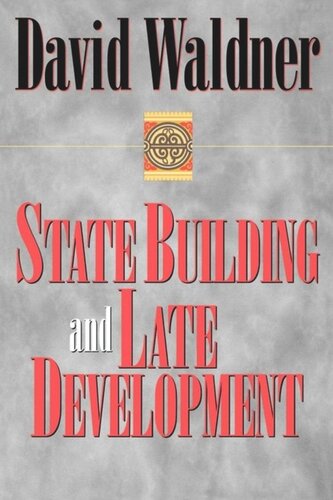

Most ebook files are in PDF format, so you can easily read them using various software such as Foxit Reader or directly on the Google Chrome browser.
Some ebook files are released by publishers in other formats such as .awz, .mobi, .epub, .fb2, etc. You may need to install specific software to read these formats on mobile/PC, such as Calibre.
Please read the tutorial at this link: https://ebookbell.com/faq
We offer FREE conversion to the popular formats you request; however, this may take some time. Therefore, right after payment, please email us, and we will try to provide the service as quickly as possible.
For some exceptional file formats or broken links (if any), please refrain from opening any disputes. Instead, email us first, and we will try to assist within a maximum of 6 hours.
EbookBell Team

5.0
88 reviewsWhy does state building sometimes promote economic growth and in other cases impede it? Through an analysis of political and economic development in four countries—Turkey, Syria, Korea, and Taiwan—this book explores the origins of political-economic institutions and the mechanisms connecting them to economic outcomes. David Waldner extends our understanding of the political underpinnings of economic development by examining the origins of political coalitions on which states and their institutions depend. He first provides a political model of institutional change to analyze how elites build either cross-class or narrow coalitions, and he examines how these arrangements shape specific institutions: state-society relations, the nature of bureaucracy, fiscal structures, and patterns of economic intervention. He then links these institutions to economic outcomes through a bargaining model to explain why countries such as Korea and Taiwan have more effectively overcome the collective dilemmas that plague economic development than have others such as Turkey and Syria. The latter countries, he shows, lack institutional solutions to the problems that surround productivity growth.
The first book to compare political and economic development in these two regions, State Building and Late Development draws on, and contributes to, arguments from political sociology and political economy. Based on a rigorous research design, the work offers both a finely drawn comparison of development and a compellingly argued analysis of the character and consequences of "precocious Keynesianism," the implementation of Keynesian demand-stimulus policies in largely pre-industrial economies.